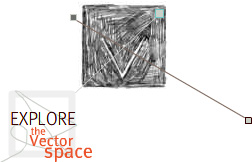Tracking Theory
The Synthetic Philosophy of The Glance
Editor's Introduction
Eric Faden's video essay, Tracking Theory takes a form that is all too rare in academia. At once personal and historical; authentic and constructed, Faden's work shows the power of moving images and sounds to present an argument that is richly illustrated and imaginative while densely researched and precisely articulated. Drawing inspiration from such venerable texts as Wolfgang Schivelbusch's The Railway Journey, Faden leads us through a visual history that maps the parallel evolution of train travel and early cinema and the radical disruption of traditional relations between the body, space and time that these two technologies represent. The essayistic form of the piece allows Faden to indulge his own personal obsessions, including a fascination with three films in which trains figure prominently: Wong Kar Wai's 2046, Lars Von Trier's Europa, and Gustavo Mosquera's Moebius, while simultaneously relecting on the broader implications of the evolving relation between perception and memory.
Implicit in Faden's argument is the inevitability of further transformation of sensory perception in response to technological developments. Even those which seem to be most transparently hard-wired between our brain and sensorium are subject to cultural, historical and cognitive mediation. How differently will children of the next century "see" the world as a result of presently unimaginable technologies of perception? At the same time, Faden's work underlines the value of existing theories of perception that have been developed within cinema studies over the past several decades. By projecting his theoretical investigation backwards into an imaginary past, Faden positions us as potential science fiction-esque predictors of an as yet unimaginable future. We at Vectors look forward to additional installments of his "Media Stylo" series and hope this work contributes to an expanding range of essayistic media scholarship.



